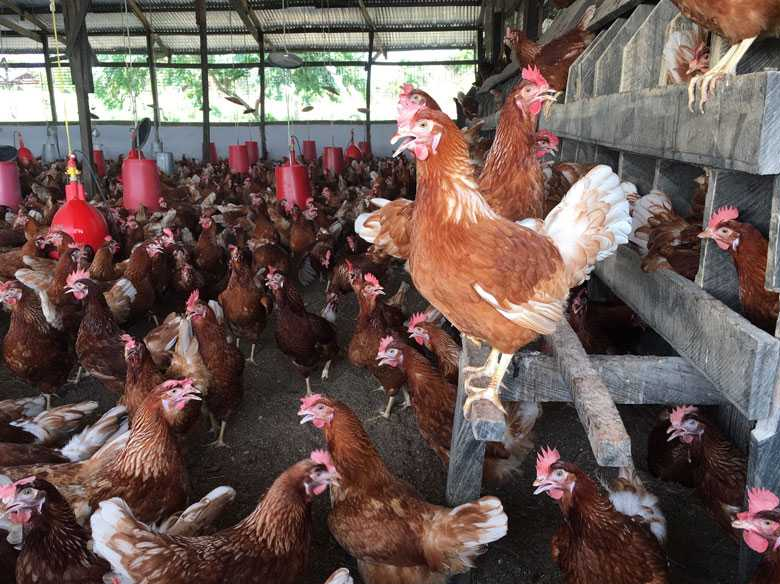In recent news, Ghana has been placed on high alert as a bird flu outbreak hits its neighboring country, Togo. The outbreak was officially announced by the Volta Regional Health Directorate, revealing that over 1,000 birds have been killed following the outbreak. This article aims to provide comprehensive information about the situation, including preventive measures, symptoms, and potential risks associated with Highly Pathogenic Avian Influenza A(H5N1).
Understanding the Bird Flu Outbreak
The Ghana Health Service (GHS) released a statement on July 7, informing all stakeholders about the outbreak of Highly Pathogenic Avian Influenza A(H5N1) in Lomé, Togo, on June 22, 2023. The outbreak has resulted in the death of approximately 1,450 birds out of a flock of 1,500, with the remaining birds being culled. As a result, the GHS has advised all districts, especially those bordering the Republic of Togo, health facilities, and port health units to heighten their surveillance activities for HPAI A(H5N1) disease.
Precautions to Take
To ensure the safety and well-being of residents, the GHS has provided several precautions to follow during this high-alert period. It is crucial for individuals to avoid direct contact with wild birds and observe them from a safe distance. Even if wild birds do not appear sick, they can carry avian influenza A viruses. Unprotected contact with domestic birds (poultry) that exhibit signs of illness or have died should be strictly avoided. Furthermore, individuals should refrain from touching surfaces that may be contaminated with saliva, mucus, or feces from wild or domestic birds.
Protective Measures
To mitigate the risk of contracting the virus, the GHS recommends the use of protective equipment. Gloves, an N95 respirator (if available), or a well-fitting face mask and eye protection should be used while handling birds or surfaces that could potentially be contaminated. Additionally, it is crucial to avoid touching the mouth, nose, or eyes after contact with birds or surfaces that may carry bird flu pathogens.
Heightened Surveillance Activities
Given the severity of the outbreak and the proximity to Ghana, health facilities and port health units are urged to intensify their surveillance activities for HPAI A(H5N1) disease. This increased vigilance will help in early detection, prevention, and control of any potential outbreak within the Ghanaian borders. The GHS places particular emphasis on districts that share a border with the Republic of Togo to enhance their surveillance measures.
FAQs (Frequently Asked Questions)
1. What is the significance of the bird flu outbreak in Togo for Ghana?
The bird flu outbreak in Togo is significant for Ghana due to the close proximity of the two countries. There is a risk of the virus spreading across the border, potentially affecting Ghana’s poultry industry and posing a threat to public health.
2. Can humans contract bird flu?
Yes, humans can contract bird flu, especially if they come into direct contact with infected birds or surfaces contaminated with the virus. However, it is important to note that human-to-human transmission of the avian influenza A(H5N1) virus is rare.
3. What are the symptoms of bird flu in humans?
Symptoms of bird flu in humans can vary and range from mild to severe. Common symptoms include fever, cough, sore throat, muscle aches, headache, and shortness of breath. In severe cases, bird flu can lead to pneumonia, acute respiratory distress syndrome (ARDS), and even death.
4. Is there a vaccine available for bird flu?
Currently, there is no widely available vaccine specifically designed for the avian influenza A(H5N1) virus. However, research and development efforts are ongoing to develop effective vaccines against various strains of bird flu.
5. How can I protect myself from bird flu?
To protect yourself from bird flu, it is important to follow the recommended precautions. Avoid direct contact with wild birds and observe them from a distance. Use protective equipment such as gloves, an N95 respirator, or a well-fitting face mask and eye protection when handling birds or potentially contaminated surfaces. Additionally, practicing good hygiene, such as frequent handwashing, can help reduce the risk of infection.
6. What should I do if I suspect a case of bird flu?
If you suspect a case of bird flu, it is crucial to report it immediately to the appropriate health authorities. Contact your local health facility or relevant public health agency to ensure prompt response, containment, and prevention of further spread.
Conclusion
Ghana remains on high alert as a bird flu outbreak hits Togo, its neighboring country. With over 1,000 birds killed following the outbreak, it is essential for Ghanaian residents to take necessary precautions. Avoiding direct contact with wild birds, using protective equipment, and observing good hygiene practices are crucial steps in preventing the spread of avian influenza A(H5N1). By heightening surveillance activities and staying vigilant, Ghana can effectively respond to any potential threats and protect both its poultry industry and public health.
















